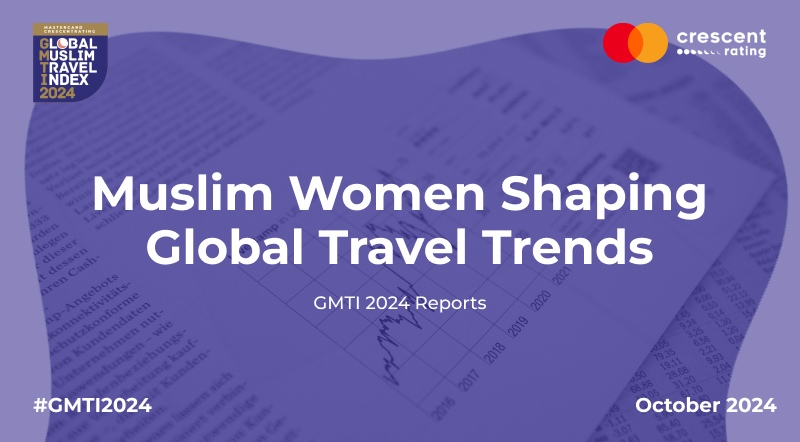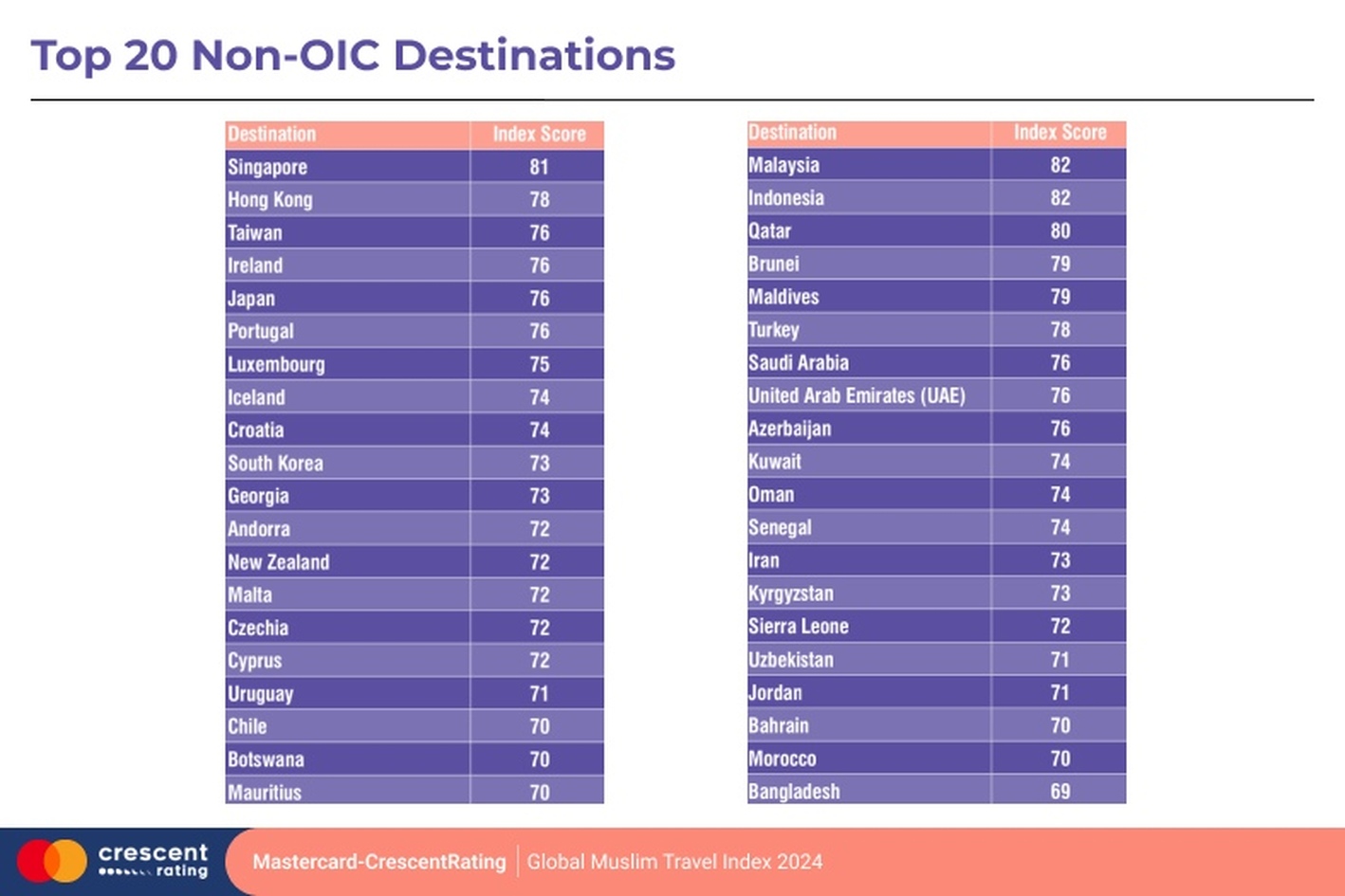
The global travel industry is undergoing a growing shift with the emergence of Muslim women, like Gen Zs, as vacation travel decision-makers in family travel. The 2024 Global Muslim Travel Index (GMTI) highlights this growth, emphasizing the increased need for destinations that specifically cater to the unique needs of Muslim women. As Muslim women increasingly show their influence in the travel market, especially with over 70% exerting influence in family travel planning, it is important for the tourism industry to specifically create an inclusive, safe and culturally sensitive environment.
Muslim women have become a crucial demographic in the global travel market, particularly influencing family and couple travel decisions, with over 70% actively involved in trip planning. This implies that travel destinations and services need to immediately consider Muslim women's specific preferences. Prioritizing destinations that respect cultural and religious practices, Muslim women travelers now hold significant power, along with higher expectations for safety and a supportive travel environment. With this, the huge influence of Gen Z Muslimahs will not only significantly change the travel landscape but also encourage travel destinations to be more inclusive and spiritually aware.
Data from the Mastercard-CrescentRating Muslim Gen Z Travel report 2023 indicates that 80%-90% muslim women preferred women-only prayer rooms, while 74% expressed a desire to explore Islamic heritage tourism. Their quest for authenticity is also important, with nearly 70% preferring cultural immersion and 63% seeking educational experiences during travel. For Gen Z, safety is the highest priority; 95% of them prioritize travel destinations which are free of hate crimes, and 80% use social media to stay in touch when traveling. Another major worry is affordability, with 53% of respondents choosing daily travel expenses of less than $150 USD.
GMTI 2024 has refined its assessment criteria for Muslim Traveler Friendly destinations, incorporating factors that address the concerns of Muslimah travelers. These criteria are integrated into the Environment dimension of the ACES model and highlight the following areas:
Faith Restrictions: Places are evaluated according to how well they accommodate practices of faith, such as prayer areas, Halal food, and attire. Destinations with greater accommodations and fewer limitations receive higher ratings.
Safety: Emphasizes freedom from harassment, street safety, and views toward female travelers in general, particularly those who are traveling in groups or alone.
Sustainability: Evaluates travel locations according to environmentally conscious programs and moral tourism that uplifts local women and communities.
Accessible Travel: Examines locations with public areas and transportation options that assist women, families, and people with special needs.
GMTI 2024 highlights several destinations in various regions of both Muslim-majority and non-Muslim countries that have made significant strides in creating a welcoming travel experience for Muslim travelers.
Southeast Asia: Despite a decrease from the previous year, Malaysia and Indonesia dominate with 82 points. They maintain their lead by putting an emphasis on sustainability, safety, and easing religious restrictions. Among the top five are the safest and most welcoming places for Muslims: Brunei and the Maldives.
Middle East: The top travel locations are Oman, Saudi Arabia, Qatar, Turkey, and the United Arab Emirates. Travelers who identify as Muslimahs are welcomed to Qatar, which offers strong security and a setting free from religious constraints.
East Asia: With an emphasis on sustainability, safety, and inclusivity, Singapore is the leader among non-OIC nations. Taiwan, South Korea, Japan, and Hong Kong all provide safe havens free from discrimination based on religion.
Africa: The three African nations recognized by GMTI 2024 are Senegal, Sierra Leone, and Morocco. Because they provide secure and welcoming situations for Muslims, Africa may appeal to Muslim tourists.

Muslimah travelers, particularly those in Generation Z, frequently use online platforms to organize and share their travel experiences in this era of social media and digital connectivity. Over 80% of Gen Z Muslimahs use social media to research potential vacation spots, read reviews, and get advice from other travelers. In addition to influencing travel preferences, this increased reliance on digital media emphasizes how important it is for places to have an exciting and pleasant online presence. By engaging Muslimah travelers through these platforms, destinations can increase their appeal and foster trust and relationships with this influential demographic.
The global travel industry is starting to realize how important it is to meet the unique needs of Muslim women travelers, as demonstrated by GMTI 2024. Travel places from Southeast Asia to Africa are increasingly emphasizing the offering of secure, eco-friendly, and suitably religious travel experiences for women of Muslim religion.
Destinations which align their services with the interests of this group will have a competitive advantage as the influence of Muslim women, particularly those from Generation Z, increases. By providing accessibility, supporting sustainability, and reducing religious limitations, these destinations will attract Muslim women travelers while also developing lasting loyalty among this growing segment.
Explore the full GMTI 2024 report in this link for the latest insights and trends!